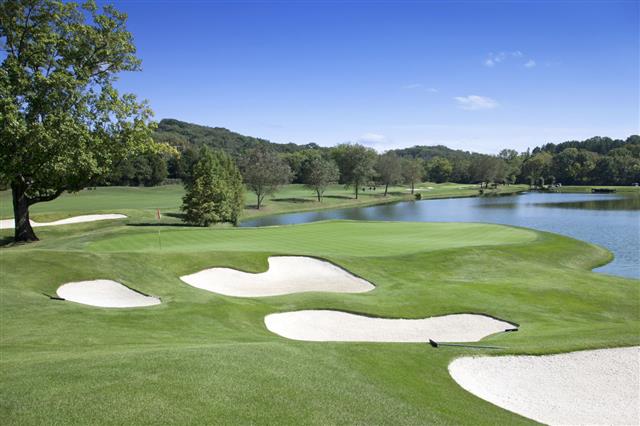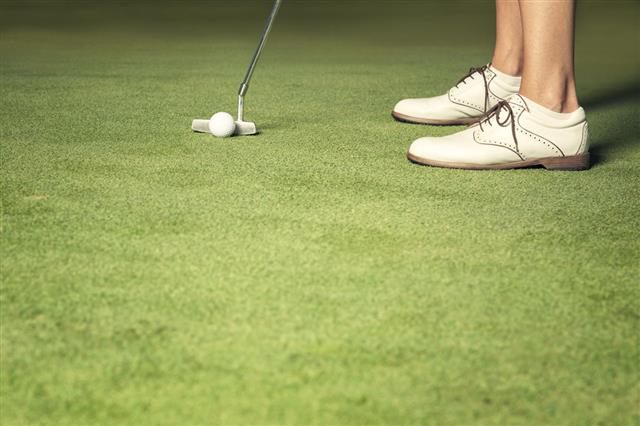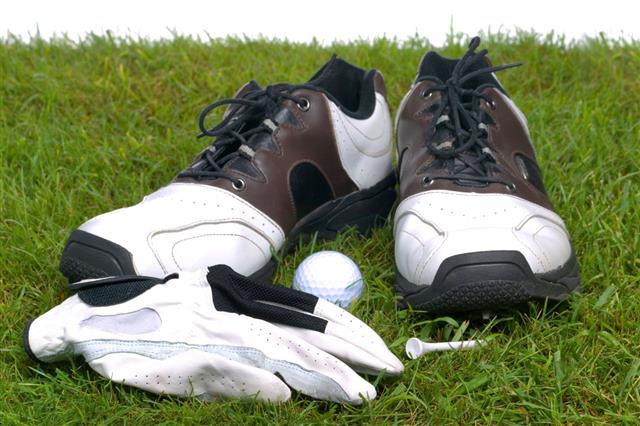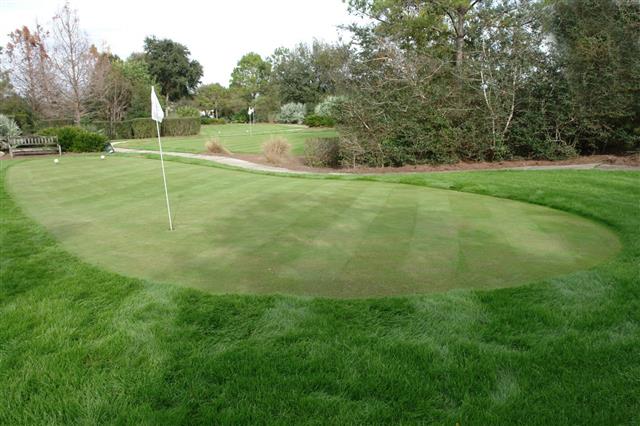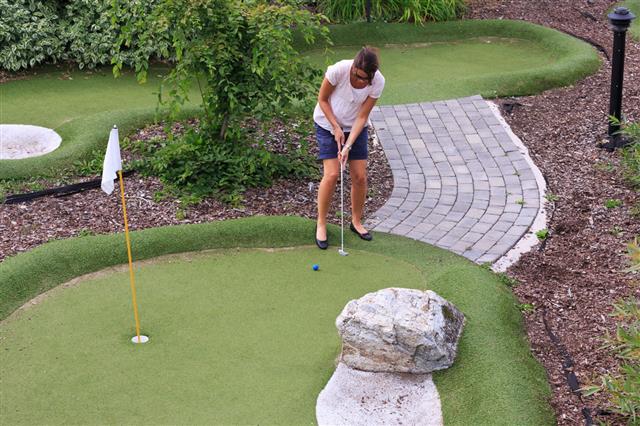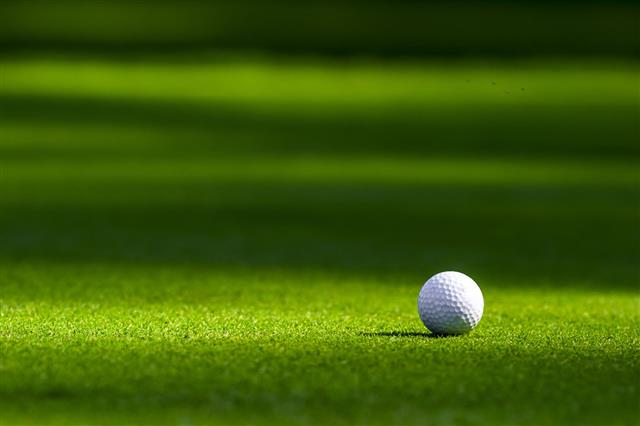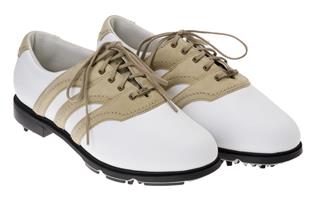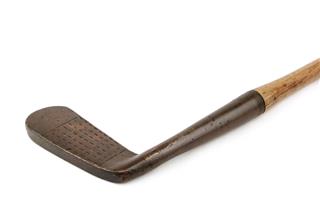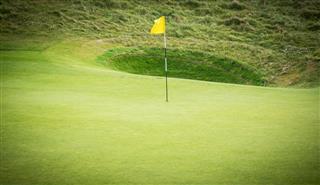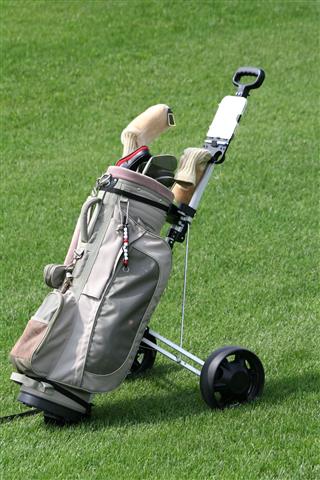
There are numerous terms which a golfer cherishes and yearns to listen too. Those who are not in the thick of golfing action hardly know about many golfing terms, except for a very few like par, putting, PGA, and so on. But not to worry; for aspiring golfers and golf enthusiasts, this glossary will be the ‘be all and end all’ of golf terms.
The putting green beckons, you call your caddie, and off you go to tee for a par. You had a great swing and you are elated. Well, that’s the magic of the game―The Game of Golf.
There are innumerable terms and phrases included in golf jargon, which everyone from Tiger Woods to Phil Mickelson to Jyoti Randhawa to any amateur golfer needs to know.
Here are the A to Z of terms used in the game of golf. After you are done reading this, you will never be left wondering on the golf course.
Abnormal Ground Conditions: Abnormal ground conditions include ground under repair, casual water, holes made by burrowing animals and so on. In case these conditions are having a negative impact on the ball, a player is entitled to relief.
Above the Hole: To describe the position of the golf ball in connection with the cup, or hole, when the ball is on the green, the golf phrase ‘above the hole’ is used.
Ace: When a ‘hole in one ‘ is scored, or a player has scored 1 on any hole, it is an ‘Ace’. Amongst the common golf terms, ace is real music for the ears for a golfer.
Aces and Deuces: This is a betting game, best suited for groups of four golfers. It is also sometimes called ‘Acey Ducey’. Here, the low score is the ace and the person who wins it, gets a particular amount from the other three players. The high score is the deuce here and the person staking it loses an amount of money to other three.
Address: When the stance is taken, the club is grounded and the position is taken by the golfer as he or she stands over the ball, it is called that he or she is at address. It is imperative for a golfer to be considered at his or her address to ensure that the club is grounded..
Adjusted Gross Score: It is basically a golfer’s stroke round up, or total, with regards to a single round, after being counted for the optimum per-hole scores, as permitted by the United States Golf Association’s Equitable Stroke Control Guidelines.
Advice: Well, this does not have any ‘golf’ connotation. It means the same as it generally means. A golfer can take advice from his partner, his caddie, and his partner’s caddie as well. But advice which could prohibit other player’s choices is not allowed unless he or she is your partner.
Aeration: Aeration basically is a golf terminology hinting towards the aeration of soil. The soil on the greens which has been compacted by the traffic of golfers, is opened up by punching of holes and removal of dirt.
Aircraft Carrier: A long, flat and rectangular teeing ground, normally a few feet higher above the level of the turf around, is called an aircraft carrier. It also includes all the trees for that particular hole.
Air Presses: Single hole bets amongst individuals which are put claims on when the ball is in mid air are called air presses.
Albatross: Three under par on any hole is called a double eagle in the USA. Albatross is the common British golf term for double eagle.
All Square: All square refers to a tied match as a result of the tied scores between the players. This is a must know amongst the terms in golf terms glossary.
Alternate Fairway: A golf hole offering two fairways is referred to as having an alternate fairway.
Alternate Greens: Just like alternate fairway, when a golf hole has two separate greens, it is termed as alternate greens.
Alternate Shot: This is basically a golf competition format, also called the Foursomes. Here, two-member teams hit the same ball alternately.
Alternate Tees: A golf hole is said to have alternate tees when there are two different sets of tee boxes built on that same hole.
Am-Am: Well, this is for the new or upcoming kids on the block. Am-Am simply means a game where there is a pair of a couple of amateurs- Am-Am, with ‘Am’ meaning short for amateur.
Amateur status: Amateur status simply means that the player is a rookie and is yet to be a professional. With an amateur status, a player cannot get paid to endorse a product, does not accept appearance fees and does not accept prize money for being a part of a tournament.
Ambrose Competition: Ambrose Competition is a golf tournament format where every player tees off, the best of them is selected. Then the ball is hit once again from the same spot. This continues till the ball gets holed. Here the team handicap plays an important role.
Amen Corner: The mecca of golf lovers and golf players- Augusta National Golf Club has holes 11, 12 and 13. The nicknames of these holes is Amen Corner. This golf club is located in Augusta, Georgia.
Appearances: The side teeing off first on each hole is considered to be an honor and there is a golf side bet according to these criteria. This is called appearances.
Approach: A shot in the golf green from the fairway is referred to as approach.
Approach Course: A golf course having short holes, may be a par 3 distance or shorter and falling short on designated teeing areas is called approach course.
Approach Wedge: Another name for gap wedge, approach wedge is a name for a golf club which has a high loft. Those who swear by these golf clubs, say that they provide accuracy and variety when it comes to short shots.
Apron: The area which is neatly moved, especially around the putting green and between the putting surface and any kind of undulated ground surrounding the putting green is called apron.
Army Golf: Army golf is a slang amongst the golf terms. This basically means that a player is hitting the ball all over the park, in different direction.
Arnies: When a golfer makes a par on a hole sans being in the fairway, he wins a side bet. That is called arnie.
Attack Wedge: Attack Wedge is the same as gap wedge or approach wedge. A-wedge is another name for gap wedge or approach wedge.
Auto Win: In the situation where holes are automatically won by player wanting to achieve either of these three – chip-in from off the green, sticking in an approach in the flagstick from 150 yards or more and any par 3, is an auto win. It is either a match play tournament or betting game.
Away: The player whose ball is the farthest from the hole whether in a fairway or a green is called being ‘away’. ‘Away’ player plays first.
Back Nine: As the name suggests, these are last nine holes of an 18-hole golf course. ‘Back Side is another name for ‘Back Nine’.
Backspin: When the ball rotates backward (towards the player)in flight along its horizontal axis, it is called the backspin.
Back Tees: The tees at the extreme rear of a golf course are the back tees.
Backweight: Any weight attached to the back of the head of golf club is referred to a back weight.
Baffie: It is the name of a wooden shafted pre-20th century golf club.
Bail Out: Bail out is playing your ball away from a potential hazard to a safe area
Bail-Out Area: An area designed or meant for serving as the target for shorter or weaker players during the playing of risky shot by stronger players is called bail out area.
Ball in Play: This just means that the ball has not been holed and you are still having a go at it.
Ball Mark: Also called the pitch mark, ball mark is the indentation made by a ball upon landing on the green.
Ball Marker: This object is used to mark the spot where the ball is lifted on the putting green.
Ballmark Tool: This is a two-pronged tool which is used to repair putting green ball marks. It is also called the ‘Divot Tool’.
Ball Retriever: It is a tool, which is by default carried by players who hit their ball in the water a lot of times. It’s basically a long pole with a scoop.
Ball Striker: Each golfer is a ball striker. It refers to the golfer’s ability in full swing.
Ballstriking: Ball striking means the full swing abilities of a golfer. A great ball striker is a golfer who is excellent at full swing.
Ball Washer: A device normally kept besides tee boxes to clean the golf balls is called a ball washer.
Barkie: This is a side bet won by a golfer making par on a hole where he has hit a tree.
Barranca: Barranca is a term used to describe a dry pitch, ravine or gully which is filled with rocks.
Belly Putter: This is a type of putter which has a longer shaft as compared to conventional putter.
Below the Hole: Once the ball is on the green, below the hole describes the position of the golf ball in connection with the cup or hole.
Bentgrass: This is the favored grass choice in any climate in which it can be grown.
Bermudagrass: In the tropical and warm climates, this is the most common turf used by courses.
Best Ball: This is one of the most popular golf tournament formats, where the low score or the best hit of a team is considered to be its team score. It is played amongst 2, 3 or 4 member teams .When it is played amongst 2 member teams, it called ‘Best Ball’.
Best Nines: Very commonly called Nassau, it features front nine, back nine and 18-hole scores as separate tournaments or bets.
Biarritz: When a green has a deep gully cutting or dividing its middle, it is called a biaritz or biaritz green.
Big Dog: This is a slang for a ‘driver’.
Bingo Bango Bongo: This is one of the very common formats of the game and is a point based game. This is one of the most basic golf terms.
Birdie: Birdie is a score on an individual hole which is one stroke below par.
Bite: When a golfer wants a ball in flight to hit the green and stop, he or she is often heard as shouting ‘bite’.
Blades: These are types of Irons with a full smooth back along with a thin top line.
Blast: A kind of shot which results in lot of sand flying, along with the ball out of the bunker of a sand trap is called a blast. Blast Out is another name for blast.
Blind Bogey: Blind Bogey is type of tournament format, where most commonly golfers are required to play 18 holes of stroke play.
Bogey: Bogey is a score of one or more on par over individual hole.
Bogey Golfer: A golfer averaging around 90 or a boogie per hole is termed as boogie golfer.
Bogey Rating: According to the United States Golf Association, bogey rating refers to the evaluation of difficulty level or rating of the golf course with regards to boogie golfers.
Bore-Through: A bore through is termed to the situation where the shaft goes in the club head, penetrating till the sole of the club.
Bounce: The measurement of the angle (in degrees) from the front edge of the sole of a club till the point actually resting on the ground on the spot of address is called bounce.
Bowmaker: A golf tournament format, popular in the United Kingdom, bowmaker involves team members playing their own balls and a specific number of the members of the team score count on every hole.
Bramble: Again, a golf format, it involves golfers teeing off and ultimately the best of the shot or drive is selected.
Brassie: Brassie is the closest twentieth century counterpart to modern-day 2-woods.
Break: The allusion to the amount the path of the ball curves when putt or, the level of curvature or slope of the greens is called ‘Break’.
Bridge: It is a golf game requiring accurate interpretation of your golf skills and limitations.
Buggy: It helps carry a golfer’s bag of clubs around the course or it is also referred to as a passenger golf cart. Buggy is one of the basic golf terms.
Bump and Run: Usually played from approximately the same distance you would possibly play a pitch shot, bump and run is an approach shot to the green.
Bunker: Filled in with sand, bunker is either a hole or depression and is categorized as a hazard.
Caddie: Caddie is the person who carries the golf bag of a player.
Calcutta: Calcutta refers to a kind of a bid or an auction, where golfers stake claims on the golfer or the team they think will win.
Callaway System: A kind of golf format, Callaway system is used in events where in maximum golfers do not have real handicap indexes. It is a one-day handicapping system.
Canadian Foursomes: A variation of the original Foursomes, Canadian foursomes is played amongst 2-player teams where players from a single team tee off and the best of the 2 are selected.
Captain’s Choice: This is just another name for golf tournament format called scramble.
Carry: This refers to clearing off an obstacle off the golf course.
Cart Fee: Cart fee is the amount of fee paid by golfers to use the golf cart, charged by the golf course.
Cart Jockey: They are the caretakers of the course’s fleet of golf carts.
Cart Path: The designated route or the route exclusively to be followed by carts is the cart path.
Casual Water: Temporary accumulation of water on golf course is termed as casual water.
Center Cut: This term is used to denote the golf shots which are well struck and which traveled very nicely down the middle.
Center of Gravity: The point located in the head of the golf club, where it would be perfectly balanced is called the center of gravity.
Chapman System: Named after Dick Chapman, a great amateur golfer, this is basically a golf tournament format. In this format, both players from each side tee off and then they exchange the golf balls. One plays the other’s drive and vice versa.
Chicago: This is again a golf game format, based on beginning of rounds by golfers with negative points.
Chip or Chip Shot: Chip shot is played very close to the green and is normally within a few yards of the putting area. Here the ball is struck and is played back into the player’s stance.
Chip-in: A chip shot that ends up dropping in the hole is called a chip in.
Chunk: This is a kind of shot where the golf club hits the ground before it hits the ball which leads to digging into the turf and it produces a big pit.
Circle on the Scorecard: This term denotes the custom or the ritual of encircling the birdie score when writing the score on the scorecard.
Claret Jug: Trophy awarded to the winner of the British Open is the ‘Claret Jug’.
Closest to the Pin: This contest is a regular and default contest when it comes to charity golf tournaments and events, corporate outings and amateur golf tournaments.
Club: Golf club, the term is used to denote the tool used to strike the golf ball, or a golfing facility or golf course and finally an association or a group of golfers.
Clubface: The clubface is the part of the golf club which strikes the golf ball at impact.
Clubhead: A part of the golf club which is attached to the end of the shaft is called the club head.
Clubhouse: When the golfers arrive at the golf course, they first head to the club house which contains a small food and drink service.
Collection Area: This is a depression on the side of the green and its position, often merged with the contours of the green leads to the collection of many approach shots.
Committee: It refers to the rules committee or the local committee which lays down the basic rules of golf.
Compression: The rating of the density of a golf ball is called a compression.
Condor: An extremely rare triple eagle is called a Condor.
Contour: It refers to the undulations in a putting green. Those putting greens with a lot of contour are called Contoured Greens.
Coring: The method through which golf course is aerated is called coring. A machine leads to removal of plugs from the green,which leaves a hole which ensures that the roots get air and moisture.
Country Club: Country club refers to a social and recreational facility, either private or semi private and has a golf course most of the time.
Course: Of course, it is the golf course, but according to the technical definition, it also means the whole area where play is permitted. If you do not include this in golf terms, then the whole glossary of golf terms is useless.
Course Handicap: Number that tells golfers the number of strokes they are permitted to take during a handicap round.
Course Management: The golfer’s decision-making during a round of golf is called course management.
Course Rating: Course rating is the evaluation of the difficulty level of the course for scratch golfers.
Crisscross: This serves as either a tournament format or a betting game. Here an individual golfer or a team can compare scores on their scorecard, while choosing the lower of two scores, leading to 9-hole total score.
Cross Bunker: This is a kind of a bunker which is positioned in such a way that it runs crossing the line of the play in the fairway.
Crown: The top surface of the clubhead, the part you can see when looking down at address, called the crown.
Crowned Green: A green which has center higher than its sides, is called the crowned green. Crowned green slopes down from its middle to its edges.
Cup: Simply put, it is a synonym for a hole on the putting green, where the golfer aims his ball at.
Cut: Cut in relation to golf means a shot which is a controlled fade or reduction of a field where a tournament is going to be played.
Cut Line: The score indicating the point of division in a tournament between the golfers who will continue and those who will be cut from the field
Cut Shot: A kind of controlled golf shot where a fadeball flight is induced by the golfer.
Dance Floor: This is a slang term for putting green. Like a golfer can say to another- ‘Your ball is on the dancing floor’.
Defender: Betting Game or points game in which a member of the group for each hole is labeled as the defender of that hole. His job is to achieve the lowest score as possible on the hole, while the others will try to beat him.
Demo Day: An event usually held at a driving range or a practice facility, where the golfers present get the chance to have a go at golf clubs. It is a scheduled event.
Derby: It is a tournament having a field of 19 players and is better known as Shoot Out.
Die in the Hole: This is one of the important golf words and phrases. It is used to refer to putts barely making it to the hole, but eventually they do end up the golf ball in the hole.
Dimple Pattern: Simply put the pattern of the dimples on the cover of the golf ball is called dimple pattern. Dimples are indentations covering a golf ball. The pattern and shape of these dimples affects the flight of the ball.
Disaster: It is a points game where the winner is the one who has collected the minimum points as points are given for bad shots.
Divot: It refers to the scraping off the turf top as a result of shots from the fairway using an iron. Another meaning of divot is the chipped off area in the fairway, where the turf existed.
Divot Tool: It is the same as a ball mark tool.
Dogleg: The direction of the individual golf hole is termed as dogleg.
Dots: It is a well-known game of golf played between members of the same grouping. It is basically a collection of side bets.
Double Bogey: A score on an individual hole which is a couple of strokes more than par.
Double Cut (or Double Cut Green) Double cut refers to mowing of the green which has been done twice.
Double Eagle: A score of three under par on any individual hole is called a double eagle in golf terminology.
Double Green: A green big enough that it serves as green for two different cups on the golf course.
Downswing: It is a part of the golf swing occurring between the end of the back swing and the point of connection with the golf ball.
Draw: It is the flight path of the ball where the ball gently curves right to left for a right-hander and vice versa for a left-hander.
Drive: This is the very first shot on a hole which is hit from the teeing ground.
Driver: One of the standard golf clubs carried by golfers is the driver.
Driving Range: Just like a shooting range where you practice shooting, driving range is a practice facility found at almost all golf courses.
Duffer: Simply put, duffer means a bad golfer.
Eagle: When there is a score of a couple of strokes less to par on any individual hole, it is an eagle.
Eclectic: This is a multi-round golf tournament that ends up with one 18-hole score for each player.
Effective Playing Length: Effective playing length is the yardage of the golf course and the holes in it but it is adjusted for the terrain. Evaluation of golf courses for USGA course rating and slope rating depends on this factor considerably.
Elevated Green: It denotes a green, which is elevated and therefore, it is higher than the area around it.
Eliminator: This is basically a tournament format for teams with 4 members. This is also a betting game for groups of four.
English: A betting game or a score-oriented competition played between groups of 3.
Equitable Stroke Control: Equitable Stroke Control or ESC is a method for minimizing the effects of disaster holes on handicap indexes and this system is used by the USGA.
Even/Even Par: A score which matches par for a round or a hole is called even.
Executive Course: A golf course which mainly has par 3 and relatively short par 4 holes is called an executive course..
Face Angle: Face angle is the angle of the face of the club head in relation to the target.
Facing: When there is a grassy incline, coming up out of the bunker in the green’s direction. It is positioned so to face a player making an attempt to play out of the bunker onto the green or towards it.
Fade: It is the trajectory of the ball or its flight, on the spot where the golf ball comes off from the face of the club. It then moves to the left of the target before gently turning or rather curving back towards right. It is vice versa for a left hander.
Fairway: An area that usually runs between the tee box and green of a golf hole which is closely mowed. It is a target for majority of golfers on all holes except par 3s.
Fairways & Greens: For groups of golfers who have similar handicaps, this is considered to be the best betting game.
False Front: The part of the green which slopes downwards in the direction of the fairway is called the false front. When a golf ball hits this area, it mostly rolls back down in the fairway, so it is called a false front.
Fat (or Fat Shot): A shot where the golfer’s club strikes the ground first and then makes contact with the ball is called Fat or Fat Shot.
Finishing Hole: It is the last hole a golfer will play in a round of golf.
First Cut: Grass that is just besides a closely mowed fairway is called the first cut.
Five of Clubs: It is a format of a golf tournament, where each golfer is allowed to use just 5 golf clubs.
Flags: In flags, which is a competition format, golfers start their round with a certain number of strokes and then until they consume their strokes, they keep on playing.
Flagstick: This is a stick having a flag and is used to mark the location of a hole.
Flange: This refers to a part of a clubhead jutting out from the rear. Flange is the thin strip of metal sitting along the ground.
Flatstick: It is a slang for putter as putter faces are supposed to be flat compared to other golf clubs.
Flex: Flex is the rating of the ability of shaft to bend while the golf club is being swung.
Flier: A shot which travels a distance not needed, which often leads the golfer to overshoot the target considerably is called a flier.
Flight: It is a term which is used for division of golfer’s during a golf tournament. A flight or a division comprises golfers with more or less similar golf skills. It also refers to the trajectory of a golf ball which has been struck and is in mid air.
Florida Scramble: It is a variation of the original golf format scramble, where a player from each team sits out each shot.
Flush: This is one of the golfing terms all the golfers yearn to hear. It is the exact and perfect contact between the club head and the golf ball, while the club is in full swing. For cricketers, this is something close to the phrase ‘middle of the bat’.
Foot Wedge: When a golfer cheats his way out of trouble using a club, it is in slang called foot wedge. Foot wedge, is specifically speaking a condition when a golfer kicks his ball or probably nudges the ball in a slightly convenient position for the next shot.
Forced Carry: A situation which needs a golfer to hit his shot above a hazard to advance his ball is a forced carry.
Fore: It is a warning call yelled by a golfer in case he or she hits an erratic shot, which could possibly land dangerously close to another player or a group of players.
Forecaddie: He is the one who does not carry the golf clubs, instead he keeps a group of players moving by telling them individually where his or her ball is.
Fort Lauderdale: This is a synonym for the golf format called scramble.
Four Ball: This is played amongst two teams of two members, hence there are four balls played and better ball scoring is used to determine the players.
Four-Man Cha-Cha-Cha: Four Man cha-cha-cha is a golf tournament format where every member of a team plays his or her golf ball all the way.
Foursomes: This is another name for alternate shot.
Frequency Matching: The process whereby it is ensured that the shaft vibrations of all clubs in a particular set, when struck, match in frequency, is called frequency matching.
Fringe: A closely mowed area surrounding the green and just off the putting surface is called the fringe. Frog Hair is a slang term for fringe.
Front Nine: The first nine holes of a golf course are the front nine holes of the golf course. Front Nine is also referred to as Front Side.
GHIN An acronym for Golf Handicap and Information Network, GHIN is a service by the USGA allowing golfers and golf clubs to access and post information electronically. This could include golf tips and related things.
Gap Wedge: Gap wedge is a golf terminology for a golf club with high loft which provides more accuracy and variety when it comes to short shots.
Gimmie: A kind of putt, where a player a requests that it be conceded by another player, which then allows the one requesting for that to pick up and move on, as if the putt has been holed.
Golf Buggy: This is the same as Buggy.
Golf Cart: This is a gas or electrically powered vehicle used to transport golfers and their golf bags on the golf course. Golf Cart is the term for golf car most widely used in North America.
Golf Club: It has the same meanings as club.
Golf Club without Real Estate: It refers to a golf club sans a home golf course, having a collection of golfers and friends playing together regularly.
Golf Town: Golf town is a golf term which is used to describe retail outlets or cities which are very much into golf. In case of cities, the cities with a whole gamut of golf courses is a golf town.
Gorse: British links courses are often lined with this thick rough, often prickly and similar to shrubbery called Gorse.
Grain: On a golf course, the direction in which the grass, or to be specific every single blade of grass is growing is called the grain.
Grass Bunker: This is a depression on the golf course which is filled up with grass instead of sand. These are not counted as hazards according to the golf rules.
Grass Club: It is the ‘by-gone era’ counterpart of the driver.
Green: Green is the completion of a golf hole, at the spot of the location of the flagstick and the cup. Here, the golfer will putt out, culminating the end of the hole.
Green in Regulation (GIR): Amateurs and recreational players use this statistical method for rating their rounds.
Green Fee: It is the amount a golf club charges to play on its golf course.
Greensomes: It is basically a 2-person game, a variation of scramble, where the players scramble off the tee.
Gross (Gross Score): It is the total number of strokes played in around of golf including penalty strokes.
Ground Under Repair: This means exactly what it implies to be, that the ground is under repair by the maintenance crew.
Gruesomes: This is more common as a betting game, but also serves as team formats sometimes where there are 2-member teams.
Hacker: Hacker is another name for duffer, although, hacker applies to an individual golfer as an insult. Hacker is a bit stronger player than a duffer.
Halve or Halved: To indicate that a hole or match is tied, the term halved is used.
Handicap: It is the numerical representation of a golfer’s skill and ability. The lower the handicap, the better a golfer. So for instance a golfer with a handicap of 5 is better than one with a handicap of 20.
Handicap Differential: This is numeral used to calculate handicap index.
Handicap Index: A numeral, to one decimal place, representing a golfer’s ability to score is called a handicap index.
Hand Wedge: When a golfer breaks the rules by picking up the ball and moves it to a better spot for an easier next stroke, it is called a hand wedge. In slang, it is called ‘club’.
Hardpan: The areas in rough, fairways, or other areas with an exception of hazards, having hard ground, as a result of compacting of the soil is called hardpan.
Hate ‘Em: These are ‘problem holes’, which are hated by golfers and that’s why it is called hate them. This can be a tournament format or a betting game.
Heather: This is an all-inclusive golf terminology for tall and thin grasses skirting the primary rough.
Hit It Flush: This is as same as Flush.
Hog: This is a betting game, akin to Defender, but has an added twist.
Hogan’s Alley: A nickname of two golf courses, accompanied by the official name of one of those golf holes associated with Ben Hogan. Ben Hogan is a golf hall of fame player.
Hole: In very easy terms, hole is where the golfers aim to putt the golf ball. This is a spot on the green where a flagstick can be seen and the turf has been chipped off to prepare that hole or cup.
Holed: This is the situation where the ball is at rest in the cup and it is below the lip of the hole. The golfer’s job is done post this situation.
Honest John: This in golf terms refers to a side bet which puts at stake your prediction powers. It is the easiest golf bets and is all about how well do you know the game.
Honey Pot: If you do not this amongst the plethora of golf terms and definitions, you might just think of quitting the game. Honey pot refers to a tournament’s prize fund or bonus pool.
Honors: A player is having honors refers to the player hitting first from the tee box. One of the golf side bets is also called honors.
Hood – Hooded – Hooding the Club: This is a tricky one. Hooding the club has two different meaning for different golfers. For some hooding the club entails pressing the hands forward,that leads to making the club face more upright, which is a way to de-loft the club. On the other hand, some golfers and golf instructors consider shutting the club face as hooding.
Hook: Hook is the flight or trajectory of the ball which commences with the golf ball out to right before sharply curving to the left, while it misses its target to left.
Hosel:The particular part of a club head wherein a shaft is fixed and secured is called a hosel.
Hosel Rocket: A slang term for shank, hosel rocket is a kind of shot where the hosel is the point of contact between the golf ball and the golf club.
Inside the Leather: This refers to a measurement employed to determine whether the putt is a gimmie. It is the distance from the bottom of the grip till the clubhead of the putter.
Interlock or Interlocking Grip: This is a kind of golf grip where hands are locked together by locking or intertwining the little finger of the trailing hand with index finger of the top hand.
In the Bucket: Another name for Eliminator, it is a kind of best ball competition where in every fourth hole, one player’s score must count as the team score. So he or she is ‘in the bucket.’
Invitational: Here, the golfers who are going to compete, be there on an invitation issued to them or they are automatically qualified for an invitation.
Irish Four Ball: Very well-known in Australia, Irish Four Ball has a team of golfers who play their ball throughout and use a Stableford or a Modified Stableford scoring system.
Irons: One of the 3 subsets (woods, iron and putter) included in a full golf set, irons are clubs which are most used from the spot of the fairway. They have varying lofts, with thin and grooved faces.
Jack and Jill: This a type of golf tournament where one woman and one man are paired together to form a two person team.
Jail: It is the position of the ball where it cannot be struck or advanced. So its like the ball is in jail.
Kick: Kick is a golfing terminology used interchangeably with golf phrase ‘bounce’, like bouncing ball. This command is yelled by a golfer with regards to his golf ball in mid air. For instance, ‘Kick Left’ or ‘Kick Right’.
Kickpoint: A point or spot along the length of the shaft, where it presents the maximum amount of bend when you pull the tip down. It is also called the flex point or bend point.
KP: Well, there is no reason why closest to the pin is abbreviated as KP, but is just that.
Knockdown: A shot played mostly to control trajectory, spin and distance, but which is short of a full swing.
Knife: This is just another word for a one iron.
Knee Knocker: Knee Knocker refers to a short putt, which somehow, is not at all challenging, but it is also not a ‘Gimme’ at the same time. It is also called a tester.
Lag or Lag Putt: A putt which is meant to stop tantalizingly close to the hole but not expected to be holed is a lag putt.
Last Man Standing: This is another name for ‘Flags’ format, where the winner is the one who progresses farthest round the course by the time he or she finishes with their allotted quota of strokes.
Las Vegas: No confusions here, this is not what you thought it is (were you thinking about casinos by any chance?). Well. Las Vegas is a betting game played amongst two teams having two members each. Losses and wins add up very fast in this game so those whose pockets are full, prefer this betting game .
Las Vegas Scramble: A modification of the original golf format scramble, Las Vegas Scramble uses a 6-sided die.
Lateral Water Hazard: It is impossible to drop behind this hazard because it runs alongside the playing area ad not across it. That’s why probably it is a lateral water hazard.
Lay Up: When a golfer opts to go for a shorter hit, to avoid a hazard or position the ball in a specific spot in spite of having the skill and capacity to hit full swing, it is a lay up.
Leading Edge: When you look at the golf club, the edge at the immediate front, which leads in a swing is called a leading edge.
Lie: Lie refers, firstly to the stationary condition of a golf ball. The other meaning of lie is the number of strokes consumed by the golfer to get the ball in the position where it is at rest.
Lie Angle: The angle which is developed between the center of the shaft and the ground line of the club during the time when the club is soled in appropriate playing position, is the lie angle.
Line of Play: The direction a golfer wants his ball to travel and a distance good enough on both sides of that desired direction is called the line of play.
Line of Putt: After putting, a golfer expects the ball to travel on a particular path. That is the line of putt. It also extends to a fair amount of space on both sides of the expected path and does not extend beyond the hole.
Links: Links, although is a golf terminology used as an alternative to Golf course, it is a particular type of golf course, which is basically built along sea side. It also has a few other specifications like the soil is sandy which is easily drained, rough featuring natural sea side grasses and so on.
Lip: This has two meanings when it comes to golf terms and golf phrases. The first means that around two inches above the level of sand, in a bunker, there is a rim of sod. This prevents the chance for a golfer to putt out of the bunker. The other meaning refers to the edge or rim of the hole or cup.
Loft: Not to go too much into technicalities, loft provides you with a cue as to how high and how far will the golf ball go. It is basically the angle where the face of the club is, in relation to a perfectly vertical face.
Lone Ranger: Lone ranger is a tournament format where one player in each four is labeled as the lone ranger. That one player has the onus to come through for the team, so he or she is called the lone ranger.
Long Iron: These are long-shafted, steep-faced normally numbering from 1 to 4 long distance irons.
Loop: A circuit around the golf course, that is 18 holes, means a loop.
Looping: The way the caddies use the word loop, to give a description of their circuit around a golf course is called looping.
Low Putts: It is a popular side bet in addition to being a tournament format. The winner here is the one who has the lowest number of putts.
LPGA: Established in 1950, Ladies Professional Golf Association (LPGA) is an organization which promotes women in professional golf.
Lunch Ball: When a golfer has not struck the ball according to his satisfaction and has not got the intended result, he or she takes a second attempt. This is called a lunch ball. It is also called the Mulligan.
Maltby Playability Factor: This is a rating system attempting to rank golf clubs on the criteria that how easy or difficult they are for differently skilled golfers to play. It is named after a renowned golf club designer, Ralph Maltby.
Maraging Steel: It is a type of steel alloy, (harder than normal steel) which is sometimes used to make irons.
Marshal: Just like we say marshaling the resources, marshal in golf is a person who manages the crowd and patrols a golf course, while keeping a steady pace of the play. He also responds to a golfer’s queries.
Mashie: A pre 20th century golf club, with a wooden shaft closely similar to the contemporary 5-iron is a Mashie.
Mashie Iron: Mashie Iron is an archaic phrase or golf word for a 4-iron.
Mashie Niblick: It is a vintage or archaic term for a 7-iron- a type of golf club.
Match Play: A competition format in which the round is played with the aim of winning individual holes.
Medalist: To put it in least complex words, it means the winner of a medal play or stroke play in any golf tournament.
Medal Play: A round of golf where the score is based on the number of strokes counted is called a medal play.
Mid Iron: Mid Iron is a vintage counterpart of contemporary 2-iron golf clubs.
Mid Mashie: It is the bygone era golf club counterpart of modern-day 3-irons.
Modified Pinehurst: It is a golf format for two player teams. Here both the teams tee off and then the best drive is chosen, followed by alternate shot to the hole.
Modified Stableford: A golf format, which is a modification of the original format called Stableford. Golfers in this format are awarded points depending on their performance on each hole with the winner being the one having highest point total. However, this is different from the set of points than the rule book norms.
Moment of Inertia: The golfing terminology used to describe a clubhead’s resistance towards twisting when the ball is hit.
Money Ball: Money Ball is another term for Lone Ranger.
Mouth Wedge: The golfers who incessantly talk to their opponents in order to disturb their game are termed as using a mouth wedge.
Movable Obstruction: An obstruction which can be moved without a herculean effort, sans delaying the play unnecessarily or leading to a damage is called a movable obstruction.
Mulligan: Mulligan is nothing but a lunch ball with a different name. Mulligans, the plural is also a competition format for groups of golfers.
Municipal Course: When a golf course owned by a city has to be indicated, it is called a municipal golf course. In addition to this, a county-owned golf course is also termed as municipal course. Sometimes in abbreviated form, a municipal course is called Muni.
Murphy: It is a kind of bet which can be invoked or initiated by a golfer chipping to the green. Such a player usually bets getting up and down in a couple of strokes.
Muscleback: Iron with a full back of the clubhead, rather than a cavity back iron is called muscleback.
Mutt and Jeff: The side bet or golf tournament format where the spotlight is on par-3’s and par-5’s only, is called Mutt and Jeff.
Nassau: Nassau is a very well-known and most popular name for Best Nines.
Nasties: A side bet for any group of golfers, nasties are won by default by a golfer who holes a shot from off the green. The value of ‘nasties’ is decided before the commencement of the round.
Nearest Point of Relief: In the condition where there is an hurdle as a result of an immovable obstruction or abnormal ground conditions, the golfers are permitted to drop without penalty a distance equivalent to a club length of the nearest point of relief.
Net/Net Score: A player’s gross score after the consideration of the respective golf course handicap is called net score.
Niblick: This is again an archaic golf terminology, denoting a 9-iron. It is primarily a wooden-shafted historical golf club.
Nicklauses: Nicklauses is a side bet in which the long drive on each hole wons automatically, but the drive must be in the fairway.
Nines: This is a points based competition played amongst players in group of fours. It is also a side bet where there is a competition involving groups of four, like in Foursomes or in a fourball.
No Alibis: This refers to a game of mulligans, which can be used from any spot or point on the golf course.
No Putts: No putts is a tournament format where the winner is decided by all strokes except for the putts.
Obstacle Stroke Value: The numerical representation of the gravity and playing ability of obstacles and hazards on a golf course, which is a crucial factor in USGA course and slope rating numbers is called obstacle stroke value.
Odds and Evens: Akin to the golf format Alternate Shot, this format has one player hitting shots on holes which are even and the other on odd holes. So the name odds and evens.
Offset: The distance from extreme front of the hosel to the extreme front part of the clubhead is the offset.
One Club: This is precisely the meaning of the golf tournament. Each golfer is allowed to use only a single golf club.
One-Putt: Top hole the ball, when just a single or one putt is taken, it is called one putt.
Open: As opposed to Invitational, this is a tournament where participants are not restricted to those who have not been invited.
Open Face: The position of the clubface in connection with the target line at the moment of the striking of the ball is called an open face.
Out: Out in golf terminology is another name for away.
Out-of-Bounds: The areas outside a golf course from where no one is permitted to play is termed as out of bound in the glossary of golf terms.
Over Par: It denotes any score, be it for a completed round or for an individual hole, which is above the decided par for that round.
Overseeding: When the grass is laid on top of grasses already there, for encouraging new growth or for replacing the existing grass for a new season with a different strain, it is called overseeding.
Overall Weight: This, also called dead weight, refers to the total weight of the golf club.
Overswing: This refers to a swing so hard that it affects the result in a negative manner.
Par: Basically, it is the standard number of scores which a scratch player is expected to finish a course or a hole.
Par is Your Partner: This refers to a rule or stipulation in tournament which restricts a team’s or player’s optimum score on every hole to a net par.
Par 3 Course: A course which just has par 3 holes and nothing else is a Par 3 course.
Par or Out: A game where full handicaps are used involving golfers with low handicap is a par out. It is also a side bet.
Peoria System: A one day handicapping system where majority of golfers are not given actual handicap indexes. This is system basically for tournaments.
Perimeter Weighting: The distribution of weight in a clubhead, in very uniform manner around the club by adding more weight to the heel, sole and toe.
Pick Up Sticks: Bag Raid, which is another name for pick up sticks is a game contested by two players. Here, every time, a hole is won by a player, the opponent has the chance to opt for a single club form his bag, which will lead to the elimination of that club from the course of play.
Pin: This is a synonym for flagstick. In the rule book it is flagstick, but with amateurs, flagstick is better known as pin.
Pinehurst (Pinehurst System): This is the same as chapman system which is a 2-person golf tournament format. Dick Chapman, one of the great amateur golfers, thought of this format at Pinehurst Resort, so the name.
Pin High: The term describing the depth to which a golfer has placed his approach shot on the green is called pin high.
Pink Lady: Pink Lady is also known as Money Ball, Lone Ranger, Pink Ball or Yellow Ball. Basically it is the name of a golf tournament, rather a tournament within a tournament.
Pitch or Pitch Shot: When a shot is played using a highly lofted club, which is precisely made in a way that it goes a short distance with a high trajectory, it is termed as pitch shot.
Pitching Niblick: Primarily a historical golf club, with a short wooden shaft, which lead to it being an obvious choice for short approaches and chipping. In the manner of usage, they are most akin to contemporary wedges.
Pitch Mark: This is the same as ball mark.
Pitching Wedge: This refers to a lofted short iron, which in the order of golf clubs comes after 9-iron.
Play Club: The vintage counterpart of the modern-day driver is the play club. They are called counterparts on account of their loft and the purpose of swing they serve.
Play It Again, Sam: This refers to another name for No Alibis were the initial handicaps are converted into mulligans. This is a general understanding of the term, but it is also used as to refer to a game opposite of No Alibis.
Play Through: When a faster group of players is given the permission to pass a slower group of players on golf course, it is called play through.
Polee: Polee refers to a sidebet with different meanings. Either it is a just-one-time bet while a round is going on or it could be an ongoing bet which will continue all throughout a round.
Pop: A handicap stroke is called Pop sometimes.
Postage stamp: A green having a particularly small surface are indicating or posing a demanding target.
Pot (hole) Bunker: This is a type of bunker which is small, but is very deep and has steep faces and is round. These are a regular feature of links-category of golf courses.
Powerball: Sometimes used a synonym for scramble, it actually refers to the fact that the tournament is a scramble, but with a twist.
Preferred Lies: Here on certain parts of a golf course, golfers are permitted to get their lies in a better position sans penalty. But this condition exists under local rule only.
Press (or Pressing the Bet): Simply put, it is a second bet, which commences during a round and runs parallel to the original bet.
Primary Rough: The most dense, the highest and most dangerous rough for a golfer is the primary rough.
Pro Shop: This is either at the golf course, in the clubhouse where the golfers pay the green fees and golf merchandise is for sale; or a separate entity or to be more specific, business selling only golf merchandise.
Progressive Offset: The quantity or amount of offset which changes from club to club, throughout the sets, especially iron sets, is called progressive offset.
Provisional Ball: In the circumstances where a golfer believes his or her first ball may be lost or out-of-bounds, the golfer can play another ball, which is the provisional ball.
Pull: A golf ball’s trajectory in which the ball initially moves towards left of the line of the target and goes on in the same direction, ending up on the left side of the target. This is for a right-handed golfer.
Punch or Punch Shot: A golf shot, that is fashioned to fly lower than normal.
Punchbowl Green: A green below is fairway level surrounded by a mound, leading the golf balls to be funneled down to the putting surface is called punch bowl green.
Push: Push is the opposite of pull. Push is a ball flight which starts on the right of the line of the target and retains that direction straight ahead and winds up keeping the target well to the right, for a right-hander.
Putter: A club which has a slight face or very little loft, is called a putter. It is meant to putt or roll the ball on ground.
Putt for Dough: This is a points game which can be played within a foursome or it also refers to a side bet for a group of golfers.
Putting Cleek: It is primarily a golf club used for putting, which is either shallow faced lofted wooden club or narrow bladed iron clubs. The iron one is similar to modern 1 iron and the wooden resembles today’s 4-wood.
Quacker: A shot curving abruptly and sharply from right to left with regards to a right-handed golfer. It is also called a snapper, duck hook or snap hook.
Quail High: Quail high refers to a very low trajectory shot.
Quit: In this shot, the golfer does not follow through totally with momentum, instead there is de-acceleration through impact.
Quota Tournament: Quota Tournament is a game which has a structure similar to Chicago. But in quota, the players begin with points matching their handicap.
Q School: It is the Professional Golfers Association (PGA) Tour’s yearly qualifying tournament.
Rabbit: It is again, a side bet,named after the situation where someone runs ahead in a mile off the field, setting the pace. The aim in Rabbit is to get the lowest possible score on a hole and the player then gets the honor post 9th and 18th holes.
Rainmaker: It means to strike a pop up or skying the ball.
Range Ball: Those balls which are used only on driving range, marked to distinguish them from the regular balls are called range balls.
Range Rat: A golfer or aspiring golfer who spends most of his time at the driving range and loves to hone his golfing skills is called a range rat.
Ready Golf: This without any complexities, means when you are ready, hit. The proper way to decide the hitting order has been prescribed in the rules of golf and golf etiquette. When on the tee, it is honors and if it is otherwise, its away.
Redan/Redan Hole: Redan hole is one of the most copied golf courses across the globe. The crux of a redan is greens and green complex. It is basically par 3.
Red, White and Blue Tournament: This name of a golf tournament format makes an allusion to the color of tee markers. In case the golfer has club using different colors, or gets more than 3 tee boxes, the golfer can consider it as Forward, Middle and Back Tournament.
Reverse Overlap: The most used golf grip for putting which involves holding the club in such a way that the index finger of the top hand is on the top of the fingers of the bottom hand.
Reverse Scramble: Scramble is a tournament format where the members of a team tee off and the best is chosen and then,the next shot is taken from that spot. Then the best of them is chosen. In reverse scramble it is the opposite, the worst of the tee balls is chosen.
Rough: The areas marshaling the boundaries of the fairways featuring thick and high grass or natural, unkempt vegetation is called the rough.
Round: Round refers to the completion of 18 holes of golf. It also means the score registered by a golfer for those 18 holes.
Round Robin: It denotes a game of golf played best when there are groups of four golfers. Here, players get rotational partners at every 6th hole.
Routing: It refers to the path followed by a golf course from the 1 st tee to its final green.
Rub of the Green: In case a ball is stopped or deflected incidentally an outside factor like a caddie or the likes, it is termed as the rub of the green. Then the ball is played from the spot it has come to rest, without any penalties.
Sandbagger: Normally any golfer who tends to pretend how worse he is at golf (which he or she is actually not) and misleads others is called a sandbagger. He indulges in inflation of his handicap index to enhance his possibilities of winning the bets or tournaments.
Sandie (Sandy): Making par on a hole where you were in a bunker refers to Sandie. Another meaning of Sandie means in a couple of strokes, a player gets out of the bunker in the hole. When used with regards to a PGA tour, sand save percentage, a statistical category implies to a player getting up and down out of a green side bunker.
Sand Trap: A bunker filled with sand is called a sand trap in vernacular.
Scotch Foursomes: Most of the time, Scotch Foursomes is just a synonym for Foursomes. This, however, has a twist. In a scotch foursome, it might mean that the alternate shots are considered and carried over from a hole to another.
Scramble: Primarily a very popular golf tournament format, scramble is played with either 4-person teams or 2-person teams. Here the players have tee off and the best out of them is selected. The ball is then played from the spot it is according to the best shot. Then, out of them, the best is selected and the players carry on until the ball is holed.
Scratch Golfer: A scratch golfer is the one who shoots par or better. According to the USGA, a scratch golfer is defined as – “An amateur player who plays to the standard of the stroke play qualifiers competing in the United States Amateur Championship. The male scratch golfer hits his tee shots an average of 250 yards and can reach a 470-yard hole in two shots. The female scratch golfer can hit her tee shots an average of 210 yards and can reach a 400-yard hole in two shots”.
Selected Score: This is a game of golf or very commonly a bet played over golf holes counting to 36. Starting off with 36 holes, the players then compare their scorecards. Then they select the better scores made on each hole and after adding up, whoever has the lowest score wins.
Seve: A golfer wins a seve, which is a side bet, only after he accomplishes par by hitting into the incorrect fairway. In other sense, it is a synonym for Barkies or Woddies and Arnies.
Shaft: That part of the club which goes all the way uptill the top of a golf club, into the grip till the clubhead is called a shaft.
Shamble: A golf tournament which brings together aspects of scramble tournament format and strokeplay is called shamble.
Shank: Mis-hit, which is so bad that the golfer makes the contact of the ball with any other part of a golf club other than the clubface.
Shazam: It is a golf bet and an exclusively putting oriented bet at that. The bet is on the possibility that a competitor will three-putt a green.
Shoot Out: It is a tournament format which fields 19 players who are eliminated one by one at each hole, till there is one remaining.
Short Side: This makes a reference to the position of the ball in connection to the location or placement of the cup on the green. The side to which the hole is cut on the green is the short side.
Shotgun Start: This is one of the methods to start off a tournament where all the players tee off at the same time. For example, if there are 18 groups of 4 in a tournament, each hole on the golf course will be the starting hole for all the different groups.
Signature Hole: It is mostly a marketing gimmick used by golf courses to entice golfers. The term signature hole means that there is one hole which is most photogenic and pleasing on the course as decided by the golf course management.
Sixes: This another name for Round Robin, a game for groups of four golfers. This is best played by partners who have similar level of expertise or golfers who use full handicaps.
Skins/Skins Game: This stages players in a kind of match play where each hole is allotted a set value. A golfer winning the hole is referred to as having won the skin and the value of that skin.
Skull or Skulled Shot: To skull the ball means to have the impact of the ball with the leading edge of the iron. This is also called the skulled shot.
Skyball: This is a mishit where the driver makes a contact with the teed ball on its crown or at the extreme top of its face. It happens because the clubhead slips below the teed ball.
Skymarks: Scratches developed on the finish of the crown of a driver as a result of hitting skyballs are called skymarks.
Slice: Here, interestingly, the ball curves similar to the shape of a banana. It starts moving in the left of the target, eventually bending very sharply back to the right of the particular target. This is for a right-handed golfer. For a left-handed golfer, it will be the opposite.
Slope Rating: The difficulty of a course for bogey golfers ranging from 55 to 155, in relation to the USGA course rating, is termed as golf slope rating.
Snowman: A score of 8 on any given individual cup is called snowman in slang because the figure of the digit is similar to the structure of a snowman.
Snake: A betting game which sort of spells doom for that member of the foursome, who has 3-putts just lately.
Snap Hook: This is another name for quacker.
Sod: It means the grass on the turf and the soil it is rooted in which can be planted as a separate piece on the golf course. It is generally in squares and rolls.
Spade Mashie: A pre-20th century golf club, this is closely linked to today’s 6-irons.
Splashies: This is a side bet which a golfer wins on accomplishing a par on hole even though he has hit it into water.
Split Fairway: A single fairway branching out in a couple of different fairways reaching and opening out in the same green is called a split fairway.
Split Tees: In the condition where half of the field in a golf tournament begins at the tee which is number 1 and the other half begins on the tee no.10.
Spoon: This is an antique term for lofted wood or 3-wood golf club.
Spring-Like Effect: This is an expression describing what is the subject of measurement in connection with coefficient of restitution.
Square Face: The position of the clubface in relation to the line of target at the moment of contact where the club strikes the ball is called a square.
Stableford: This is a format of the golf tournament where the aim is to achieve the highest score. This is because the points are given on the basis of their scores in linkage with a fixed score at each hole.
Stadium Course: Stadium golf course or stadium course is a golf course built with one of its aims being to give golf fans great vantage points. Basically a stadium golf course will have greens giving something like an amphitheater effect.
Stance: Stance is the way the golfers stand or position their feet before they play a stroke.
Stealies: A type of golf bet, running parallel to the closest to the pin (kp) bet.
Step Aside Scramble: Florida scramble is also known as step aside. Four player teams play scramble, but the player whose ball is selected for both the shots, cannot play the next stroke.
Stimp: When you say the stimp of the green, it refers to the measurement of how fast the greens are, with the help of a stimpmeter.
Stop the Bleeding: If a player is playing in a pathetic manner with bad shots going all over the park, the golfer needs to hit a fantastic shot to get a grip on the game again. While the golfer is struggling with his shots, it is called bleeding.
Strike Three: This is a betting game or a tournament format. It works thus- after finishing a round, identify the 3 highest individual hole scores and then eliminate them. Then add the remaining and the person who has the lowest score is the winner.
String It Out: A tournament format or a betting game, string is best suited when the players have partial handicaps. Basically it involves the use of string by players to get the ball out of the rough or a bunker.
Striping: Striping is nothing but the crisscross pattern of the blades of grass which are mowed in different directions by the course mowers.
Stroke: A swing, of any kind, accomplished with the purpose of striking the ball, getting it into play, is termed as stroke.
Stroke Play: It is a round of golf where the score is calculated by addition of cumulative total of the strokes which were needed throughout that round.
Stymie: A vintage aspect of golf, which was a part of singles match play till 1952, after which it was removed from the Rules of Golf. A stymie was supposed to occur in a condition when another ball was placed straight in the putting line of a golfer’s ball.
Golf Swing or Swing: Swing is to go through the stroke or a considerable jump in a score.
Swing Speed: The speed of the swing of a golfer’s club which is defined by the speed of the club head at the point of impact with the ball.
Swingweight: This refers to the feel of the weight of a club when it is being swung.
Switch: Switch as a tournament format has 2-person teams where the players switch balls after the tee shots. They follow this by playing out the hole with these balls.
System 36: This is a single day handicapping method or rather system, resembling in character and operation to Callaway and Peoria. This format permits golfers without handicap index to participate in golf tournament and contest to win low net prizes or titles.
T and F: If it is a T and F tournament, the T and F denote the first letters of the holes on the course. T and F are of special importance in this kind of a tournament.
Tap In: Tap is another name for ‘gimme’, which refers to a sure shot short putt.
Target Line: This term describes the line from the ball to its target, or just simply, line of play.
Taylor Made Golf: This is the world’s most popular and one of the foremost manufacturers of golf equipment. They specialize in great golf clubs, and their components.
Teeing Ground: The spot from where the golfers start playing for a hole, from where a golfer hits his tee shot or drive.
Tee Time: The scheduled, decided time for a particular group or team to begin their round is referred to Tee Time.
Texas Scramble:Teas scramble is different from original in the sense that it has a condition that at least four drives of every member of a team should be used in the course of a round.
Texas Wedge: When a putter is used to putt off, from the green, it is called a Texas Wedge. What’s more, this golfing term was popularized by none other Ben Hogan.
Thin or Thin Shot: Sometimes it happens that a ball is struck too high, near the midpoint or perhaps slightly lower. This leads to low and sometimes slicing shot, which could travel a long distance.
Thirty-Two: A side bet for the golfers focusing on putting, with a challenge from a golfer to another for preventing a three-putt is called thirty two.
Three Ball: Three Ball means that each player has two matches to play in a round of golf. There are essentially three players in this game. At each hole, a golfer is competing with the other two.
Three Blind Mice: This refers to a tournament format, where after the scorecards are given, the organizers of the tournament draw three holes at random from the course which has just ended. All scores on each of those three holes are tabulated and then that score is eliminated from the total score. The winner is decided after this final score.
Three Club Monte: In a golf tournament where a golfer is allowed to use only three clubs during their round is Three Club Monte. A golfer is allowed to use putter along with the three chosen golf clubs, but no golf clubs.
Three-Putt Poker: It is a betting game, combining an aspect of poker with the performance of a golfer on the greens.
Threesomes: This might seem unfair, but this is a golf match where one golfer is pitted against a team of two and each side plays a single ball.
Through the Green: Every area of the golf course with the exception of teeing grounds, hazards and greens. So in short it means the fairways and the rough.
Tiger Tees: Tee boxes which are used in professional competitions are called tiger tees in slang terms.
Tight Lie: A lie where the ball is in a place or spot where there is very little grass below the ball, or the ball is on bare dirt, is called a tight lie.
The Tips: This is a slang term for championship tees or back tees on a particular golf course. These are normally the tees starting from where the course is the longest to play.
Toe: The end of the clubhead which is the farthest from the shaft or the hosel or the neck is called the toe.
Touch: The feel or the sensitivity towards golf shots and the overall flow of a golfer’s stroke play.
Tombstone: Tombstone is better known by the name of Flags, a tournament format. In this format, the tombstone term signifies the object placed in the ground on the spot where the golfer’s round comes to an end.
Topped Shot or Top: Such a shot where the golfer almost swings over the ball and the point of contact between the ball and the club is near the crown of the golf ball.
Torque: The resistance of a shaft towards twisting when a golf club is being swung is the torque.
TPC: Tournament Players Club- (TPC) is a designation given to golf courses and courses with this designation are under the ownership of the PGA tour.
Track: The layout or the way the holes on the course are routed is called track. The word tract is sometimes used to denote track, but track is the correct word.
Trailing Edge: The part of a golf club which is at the extreme back of its sole.
The Train: This is a betting game best played in groups where points are given for good shots. But if there are bad shots or the likes, the points are cut. The aim is to gain highest number of points in a round, but there is a catch. For instance, if a golfer scores one double bogey after playing well, he or she loses all the points and has to start all over again.
Trampoline Effect: This denotes the condition where a club’s face contributes force to the shot by bouncing back.
Transition: The condition where a backswing is converted into a downswing, it is called Transition.
Trap: A bunker in other words is called a trap. Although the purists prefer bunker, some also call it trap.
Triples: This is the name of the competition amongst players in teams of three. This is also a side bet in a competition of Three Ball.
Trouble: The game in which the ultimate winner is the one who has collected the least number of points at the end of a round because the bad shots are awarded with points. Disaster is another name for Trouble.
2-Man No Scotch: A golf tournament format, in 2-Man No Scotch, the members of a team tee off. This is followed by exchanging of balls and then each of the player takes his second shot at the spot where their contrasting respective ball lies.
Uglies: It is a side bet played amongst a group of golfers and the value of the uglies is always pre-decided before the round. A golfer holing a shot from off the green, wins by default.
Umbrella or Umbrella Game: For teams of two under a foursome format, this is either a golf game or a side bet. Here, points are given for an accomplishment out of five and in case a side sweeps all the points, they are said to have scored umbrella, with points being doubled.
Up and Down: When a golfer just takes a couple of strokes for holing the ball when starting off the green or in a greenside hazard, it is called Up and Down.
Underclub: When such a club is used which is incapable of providing adequate distance for reaching the target, it is called underclub.
Under Par: Under par simply means not up to the par. It is less than par.
Undulation: The ups and downs and uneven contour in the ground, mainly with regards to putting green and fairways is called undulation.
Uneven Lie: When the ball is on an uneven slope and it is either above the feet or below it, it is called an uneven lie.
Unplayable Lie: This is a situation where the ball is in such a spot that a golfer decides that the existing spot where the ball is, it cannot be played.
Up: This is the distance to the hole from a specific spot.
Uphill Lie: There are times when a ball stops moving on an uphill slope which is towards the target. This is called uphill lie.
Upright: A steep or a very upright, vertical swing plane, lie angle or stance is referred to as upright.
USGA: This is an abbreviation of United States Golf Association.
Utility Wedge: This is a kind of a lofted wedge which is different from sand wedge or pitching wedge in either loft and sole aspects or both.
Utility Wood: This is a kind of fairway wood, having varied lofts sole or head shape and has some characteristics similar or related to irons.
Vardon Grip: This is another name for the overlapping grip. Named after great Harry Vardon, this is one of the most well-known golf grips. In this grip, the little finger (of the hand placed lower on the club) is placed between the index and middle finger of the lead (placed higher on the club). The thumb of the lead hand ideally in this situation should fit snugly in the lifeline of the hand placed lower on the club. Vardon Overlap is interchangeably used with Vardon Grip.
Waggle: You could call this as a warm up of sorts for the golf club. The small movements of the clubhead back and forth just before grounding the club to get that right momentum for the right swing is called a waggle.
Warm-Season Grasses: The grasses who thrive and experience maximum growth in warmer weather are called warm season grasses.
Waste Bunker: Not a hazard under rules of golf, unless specified, a waste bunker refers to a sandy area, normally expansive. It can have pebbles, rocks, shells and vegetation on it.
Water Hazard: Any kind of open water source, from lakes to streams to ocean to sea or even drainage ditches on the course are termed as water hazard. Even if there is no water, let’s say in a seasonal creek and the ball is dry, it is considered to be a water hazard.
Water Hole: When a hole on the golf course features water, which is in a position that it compels the golfer to play over it for the completion of a hole, it is called a water hole.
Weekend Hacker: Hacker is a bad golfer and add weekend to it, means weekend hacker, that is a golfer who plays just on weekends, which means he or she does not play or practice enough to increase the level of their game.
Whack and Hack: Whack and Hack is a four-person teams’ tournament format. It also is a betting game. Here, the members of each team play their individual golf ball for individual scores and two of those in combination make up the score of team on every hole.
Whiff: Any golfer would be embarrassed with a whiff, which means that the golfer swung but to no avail. That means, he swung and it missed the ball. It is really embarrassing for the golfer as it might appear that he or she does not know how to hit a golf ball.
Winter Rules: This is nothing but synonym for preferred lies.
Windcheater: A shot that is hardly affected by wind, as it has low ball flight and is penetrating.
Wolf: Wolf is a name for a betting game best played among groups of four players. The player who is labeled as the wolf opts if hole 1 against 3 can be played. In other words, that one player plays against the other 3.
Wolfman: This is a betting game, akin to a few others like Hog, Defender and so on. It is especially meant for groups of three players and the targeted player is selected on the basis of the driving performance.
Wormburner: This is a kind of shot which is unintentional and it just grazes the ground, it has such low trajectory. Or sometimes it is so close to the ground that it appears that it has skimmed the ground.
Work the Ball: In short, manipulating a ball, and to purposefully curve or shape a shot is called ‘to work the ball’.
X: When a score cannot be determined, because a play on the hole was not finished, it is called X.
X-Factor: The variation in the amount of the rotation between hips and shoulders is called the X-factor.
X-Out: In golfing terminology, X-outs or X-out golf balls are those golf balls on which the brand name has been distorted, using the symbol X. Interestingly, these are sold at a rate with a huge discount than the regular price of that brand.
Yank: A shot which severely swerves in the left direction of the target line in connection with a right-handed player is called a yank.
Yellow Ball: Yellow Ball is just a different word for Lone Ranger or Pink Ball or Money Ball.
Yellowsomes: Gruesomes is also called Yellowsomes sometimes, and it is 2-person team game which serves as a tournament format as well as a betting game.
Yips: When the golfer is nervous or anxious, it leads to nervous twitching during putting stroke, leading to an inaccurate shot. It also involves pushing a putt to a direction or jerking the putt to a side.
Golf Terminology for Beginners
These terms will help the beginners to know more on golf and will be a kind of beginners guide to golf.
Address: When the stance is taken, the club is grounded and the position is taken by the golfer as he or she stands over the ball, it is called that he or she is at address. It is imperative for a golfer to be considered at his or her address to ensure that the club is grounded..
Alignment: It is the position of the hips, shoulders and feet in a proper alignment with each other.
Aim: The correct position of shoulders, knees and hips, in alignment, in one direction and normally at 90 degree angle is termed as Aim.
Backspin: When the ball rotates backward (towards the player)in flight along its horizontal axis, it is called the backspin.
Backswing: The beginning of the swing as the club moves away from the target.
Ball Flight: It refers to the trajectory of a golf ball which has been struck and is in mid-air.
Club Face: The clubface is the part of the golf club which strikes the golf ball at impact.
Closed Club Face: When the clubface is rotated slightly counterclockwise in the swing path, which can cause the ball to hook, it is called clubface.
Divot: It refers to the scraping off the turf top as a result of shots from the fairway using an iron. Another meaning of divot is the chipped off area in the fairway, where the turf existed.
Downhill Lie: The angle which is caused by a golf ball placed on a sloping hill, mostly downward.
Draw: It is the flight path of the ball where the ball gently curves right to left for a right-hander and vice versa for a left hander.
Fade: It is the trajectory of the ball or its flight, on the spot where the golf ball comes off from the face of the club. It then moves to the left of the target before gently turning or rather curving back towards right. It is vice versa for a left hander.
Flier Lie: When the lie of the ball is on fluffy grass, resulting the ball to pop up more quickly than anticipated, it is a flier lie.
Green: Green is the completion of a golf hole, at the spot of the location of the flagstick and the cup. Here, the golfer will putt out, culminating the end of the hole.
Grip: The sheath of leather, plastic or rubber on the shaft is termed as grip.
Heel: The spot where the clubhead is attached to the spot, it is called the heel.
Hook: Hook is the flight or trajectory of the ball which commences with the golf ball out to right before sharply curving to the left, while it misses its target to left.
Inside Path: When inside the plane, the corresponding path of the club is referred to as inside path.
Lie: Lie refers, firstly to the stationary condition of a golf ball. The other meaning of lie is the number of strokes consumed by the golfer to get the ball in the position where it is at rest.
Lie Angle: The angle which is developed between the center of the shaft and the ground line of the club during the time when the club is soled in appropriate playing position, is the lie angle.
Loft: Not to go too much into technicalities, loft provides you with a cue as to how high and how far will the golf ball go. It is basically the angle where the face of the club is, in relation to a perfectly vertical face.
Open Club Face: When the club face is slightly in the clockwise direction inside the swing path, causing the ball to slice, it is called open clubface.
Outside Path: Outside path is that path of the club when the golf club is outside the plane.
Par: Basically, it is the standard number of scores which a scratch player is expected to finish a course or a hole.
Pivot: During the swing the upper body of a golfer turns and coils a bit. That is called pivot.
Pull: A golf ball’s trajectory in which the ball initially moves towards left of the line of the target and goes on in the same direction, ending up on the left side of the target. This is for a right-handed golfer.
Pull Hook: This is a ball flight in which the ball initially moves left of the target and curves and bends even sharply.
Push: Push is a ball flight which starts on the right of the line of the target and retains that direction straight ahead and winds up keeping the target well to the right, for a right-hander.
Push Slice: This is similar to push, where the ball starts moving right of the target and then bends or curves even more.
Shank: Mis-hit, which is so bad that the golfer makes the contact of the ball with any other part of a golf club other than the clubface.
Slice: Slice is the ball trajectory in which the ball bends towards outside, sharply in connection with the swing.
Square Club Face: When you say it is a square clubface, it means that the club face is in a position perpendicular to the swing path.
Sweet Spot: It is the exact and perfect spot on the clubface, where the impact is the best one could have on the ball.
Toe: The end of the clubhead which is the farthest from the shaft or the hosel or the neck is called the toe.
Unplayable Lie:This is a situation where the ball is in such a spot that a golfer decides that the existing spot where the ball is, it cannot be played.


